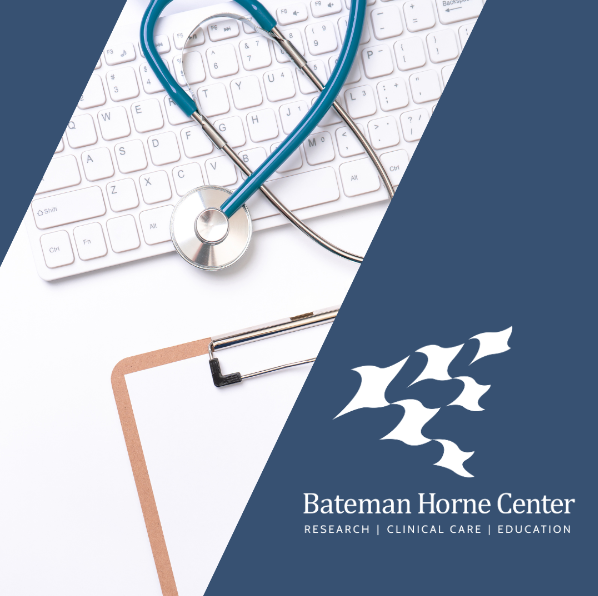Since the recent release of the NIH intramural publication detailing findings from the ME/CFS Inpatient Study, there has been a whirlwind of impassioned commentary.
While we harbor mixed sentiments about the paper, we’ve committed professionally to maintaining an open mind, clear perspective, and collaborative spirit with all stakeholders contributing to the field. Our nonprofit endeavors to embody these principles as well.
Not too distant in the past, ME/CFS was largely overlooked by the NIH. However, there has been a notable shift in this stance.
Over the past decade, we’ve witnessed significant strides, including the establishment of a dedicated NIH home for ME/CFS within NINDS, two evidence-based literature reviews, a new clinical case definition, five years of extramural funding for collaborative research centers, a heightened recognition of patient experiences, and the integration of ME/CFS knowledge and language across DHHS.
Plans were set for an ambitious intramural inpatient study of ME/CFS, which commenced enrollment in 2016. Unfortunately, the study’s completion was derailed by the pandemic, achieving less than half of the projected enrollment. Nonetheless, the extensive data analyzed by over 75 scientists culminated in the recently published data-dense paper.
We are grateful to the volunteers and research staff whose dedication facilitated data collection; and to the patients who risked their energy envelopes, their time, and their health to serve this comprehensive study, which will serve as a foundation for future studies.
But, no study is perfect. In our opinion, this one fell short by not including enough patients who are moderately to severely ill. That happens frequently in ME/CFS research, and was probably amplified by the travel, rigor and duration of the study.
Studying only early-stage, post-infection ME/CFS, may also be an important reason the findings don’t fully reflect the larger population of people chronically ill with ME/CFS.
We were particularly dismayed by use of the term “effort preference” as an explanation for the origin of fatigue when the authors subsequently go on to suggest that their data and other published data substantiate dysregulation of autonomic nervous system functioning and changes in metabolic pathways that could more readily be implicated, if not fully understood, in contributing to overall fatigue.
We were, additionally, disappointed at the lack of emphasis or evaluation placed on post-exertional malaise in this particular study. As we all know, PEM (or PESE) is a distinct and debilitating physiological phenomena that differentiates ME/CFS from other fatiguing illnesses and that can be measured (approximately) via 2-day CPET testing. PEM is not a mere “discomfort” or “symptom” for patients, and its representation and implication as a subjective symptom in this study is not in accordance with our data or practice.
Additionally, we must recognize that the pandemic has significantly augmented our understanding of post-viral syndromes compared to almost a decade ago when the ME/CFS inpatient protocol was conceived.
Fortunately, apart from the inpatient study, there’s an exciting initiative underway known as the NIH ME/CFS Research Roadmap.
This is a year long project to bring together teams of scientists, clinicians, and people with lived experience, to brainstorm the most important aspects of ME/CFS, review the literature, and recommend what might be the “roadmap” ahead for ME/CFS research, especially research that can lead to effective treatments. Click here to learn more about the project and to provide your input.
We appreciate the time and energy you invested in reading our message.
Please understand that we genuinely care and are diligently striving to advance timely and accurate diagnoses and treatments for pwME, long COVID, and related illnesses.
Yours truly,
Lucinda Bateman, MD & Brayden Yellman, MD

 Lucinda Bateman, MD, is a renowned clinician, researcher, and educator. Her Johns Hopkins University Medical School training instilled an approach to care that she has employed throughout her career - the patient comes first and the unknown or unexplained does not equate to a lack of proper and compassionate care. Since starting her own practice in 2000, she has served on six boards or committees, been the principal investigator for 45 studies, authored/coauthored 40 journal articles, served as adjunct instructor and adjunct assistant professor in the University of Utah Departments of Preventative Medicine, Internal Medicine, and Anesthesiology, and lectured around the world.
Lucinda Bateman, MD, is a renowned clinician, researcher, and educator. Her Johns Hopkins University Medical School training instilled an approach to care that she has employed throughout her career - the patient comes first and the unknown or unexplained does not equate to a lack of proper and compassionate care. Since starting her own practice in 2000, she has served on six boards or committees, been the principal investigator for 45 studies, authored/coauthored 40 journal articles, served as adjunct instructor and adjunct assistant professor in the University of Utah Departments of Preventative Medicine, Internal Medicine, and Anesthesiology, and lectured around the world.